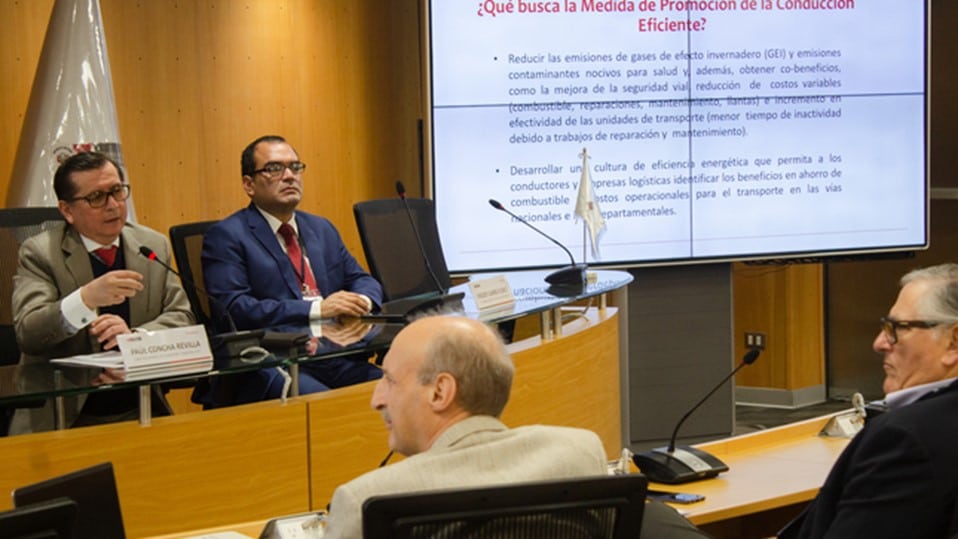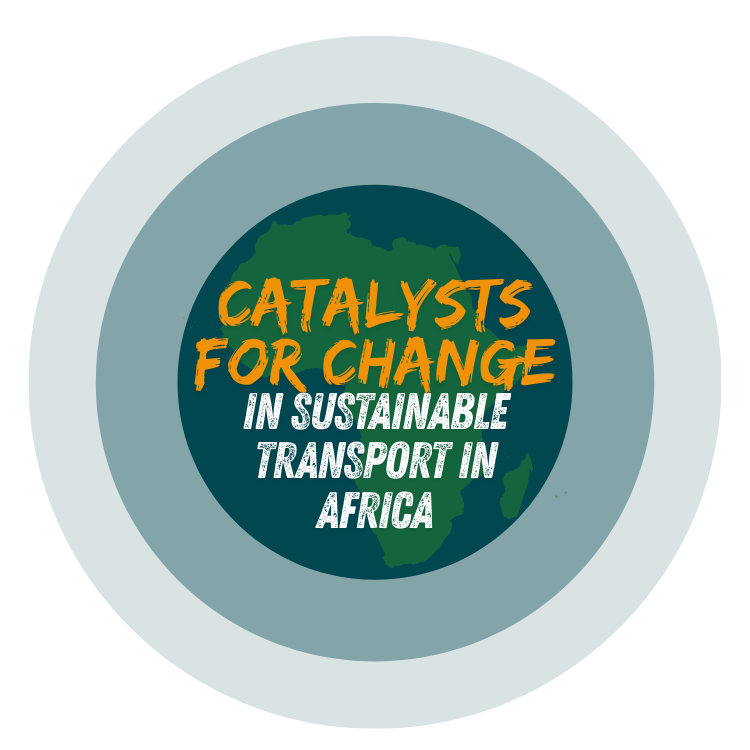
This article is part of our #StoriesofChange where we profile the work of our partner countries in developing climate actions in transport. Read more #StoriesOfChange and follow the Hashtag on Twitter.
Five years have elapsed since the TRANSfer project was launched in Peru. The aim of the project is to reduce greenhouse gas (GHG) emissions in the freight sector and to improve logistics supply chains.
Policy measures to improve freight efficiency
In 2017, TRANSfer began assisting Peru’s Ministry of Transport and Communication (MTC) with the development of initiatives for decarbonizing the transport sector. According to Peru’s 2016 Annual GHG Sectoral Report (RAGEI 2016), freight accounted for 38% of diesel consumption and produced 21% of road transport emissions. The development of mitigation actions for freight thus represented a promising climate protection opportunity. MTC has developed two national programs to improve emissions reduction in the transport sector:
Numerous activities were undertaken to design these programs and prepare for their implementation. The TRANSfer activities encompassed the following topics:
Enabling cross-departmental collaboration
TRANSfer has worked to facilitate collaboration between departments of government. As part of the two programs, MTC is collaborating with: the Ministry of Environment (MINAM), which is responsible for the climate agenda and the promotion of mitigation and adaptation; the Ministry of Economic and Finance (MEF), which is in charge of the budget; and the Ministry of Energy and Mines (MINEM), which is in charge of promoting energy efficiency.
Elaborating a technical design for both national programs
In close collaboration with MTC, TRANSfer elaborated the design of two programs.
An initial fleet assessment revealed that some 75,000 vehicles are more than 15 years old, thus highlighting the benefits of adopting newer and less polluting vehicles. The TRANSfer assessment explored market conditions and commercial procurement behavior, including relevant barriers and opportunities. The implementation of this mitigation measure, which is now part of Peru’s transport NDC, has the potential to avoid some 1 MtCO2e between 2021 and 2030.
Some 16.8 million euros in public spending was approved in 2020 to start the scrappage program.
In collaboration with MTC, TRANSfer has also developed ecodriving training materials for freight drivers and driving school instructors. The training materials were tested by truck drivers in pilot programs, and the initial results indicated that ecodriving techniques reduce fuel consumption by up to 15%.
TRANSfer then developed a more ambitious pilot program for driving instructors at the national level. The program’s educational materials help logistics companies to implement ecodriving in their operations. The pilot project showed that well-trained drivers can reduce fuel consumption by up to 23%. This indicates that a national ecodriving program could generate 4 MtC02e of GHG emissions savings by 2030. Ecodriving is included in Peru’s transport NDC as a mitigation measure.
Building capacity and developing training materials
Building capacity and developing training materials were key elements in safeguarding the program’s sustainability. Good ecodriving practices were included in the MTC Ecodriving Manual, a publication consisting of a training manual and a driver’s license application manual.

The instructor’s manual includes educational material such as quizzes, key concepts and practical exercises. It is pitched to all levels, from beginners to professionals. The latter must take the course every three years to maintain their license.
As a result of the Covid-19 pandemic, we developed a virtual ecodriving course so that driving schools throughout the country can join the training program. The virtual course includes educational materials for virtual sessions and technical resources on ecodriving.
An ecodriving monitoring toolkit was created to offer logistics companies and self-employed freight carriers the possibility of monitoring key statistics, including trip performance, vehicle maintenance intervals, estimated fuel costs, and GHG emissions. In this way, fleet managers and individual freight operators can understand where actions are required to reduce their costs and increase profits – all while protecting the environment.

Facilitating promotional activities and communication
Communication activities have been an important component of the TRANSfer collaboration with MTC. This has included outreach to local and international stakeholders to garner support for the developed mitigation programs.
Several events were organized to report on the progress of the scrappage program. The Ministry of Environment (MINAM) developed a participatory process known as “Dialoguemos” (‘Let’s talk’). Dialoguemos initiated several events, including an ecodriving event, to inform people about the NDC initiative. More information is available here.

In 2019, the Ministry of Transport and Communication, together with the Ministry of Environment, initiated a virtual forum for Building Efficiency and Competitive Transport to discuss progress being made in the development of the transport NDC and adoption of ecodriving measures.
You are currently viewing a placeholder content from Youtube. To access the actual content, click the button below. Please note that doing so will share data with third-party providers.
More InformationIn light of Covid-19 restrictions, the Ministry of Transport and Communication presented a video on health safety protocols for the freight sector to ensure the integrity of supply chains and prevent price increases.
You are currently viewing a placeholder content from Youtube. To access the actual content, click the button below. Please note that doing so will share data with third-party providers.
More InformationTRANSfer contribution to updated NDC
In its updated NDC, the Peruvian government is now seeking to achieve a 30% GHG reduction as unconditional goal and to a 40% GHG reduction as a conditional goal, both relative to a business-as-usual scenario. Together, the scrappage and ecodriving programs promise to reduce 2030 GHG emissions by up to 5 MtCO2e, based on the NDC timeline.
Looking ahead
Now that the TRANSfer project has completed the planning and preparation stage, MTC can start the implementation of the transport NDCs.
The National Scrappage Program has started with 300 urban transport vehicles withdrawn from service under mandatory scrappage. Voluntary scrappage for buses and trucks is in preparation for 2022.
The National Ecodriving Program is ready to be implemented. It contains protocols to evaluate drivers on close circuits and public roads. The training materials are ready for a national program to increase the skills of professional drivers. This program will focus on truck drivers and later will be applied to other license categories including buses, taxis, and private operators.
Each year, around 400,000 drivers’ licenses are renewed and recategorized for professional services, which includes driving for freight transport. Considering that the ecodriving program will be implemented progressively, we estimated it will be possible to mitigate 0.5 MtCO2e in the first year and to increase the program’s mitigation potential in subsequent years.
In 2021, MTC presented an official video in which the director of multimodal transport speaks about pilot programs, GHG mitigation, and how the eco driving program will be implemented to improve freight activities.
You are currently viewing a placeholder content from Youtube. To access the actual content, click the button below. Please note that doing so will share data with third-party providers.
More InformationIf you believe that you suffer (potential) negative social and/or environmental consequences from IKI projects, or wish to report the improper use of funds, to voice complaints and seek redress, you can do so using the IKI Independent Complaint Mechanism.
